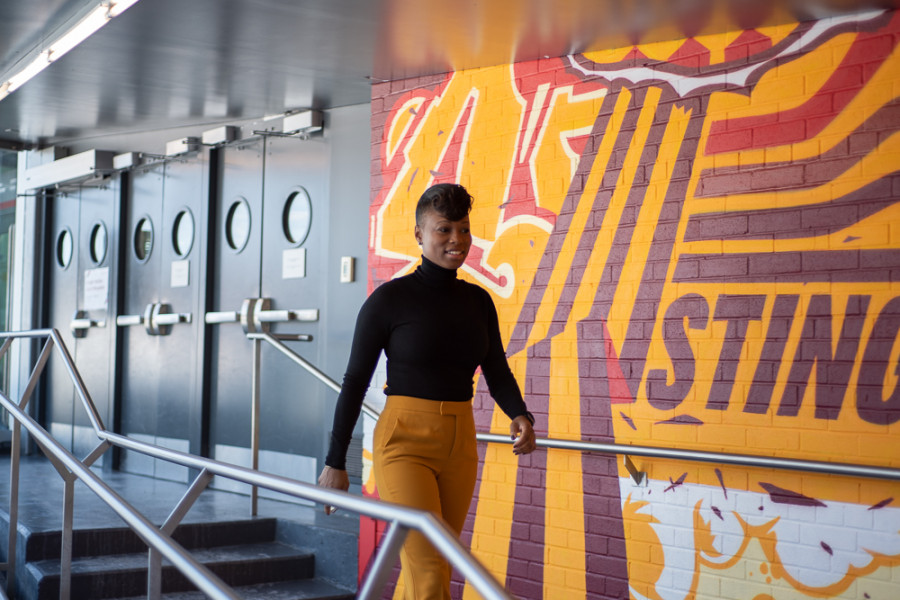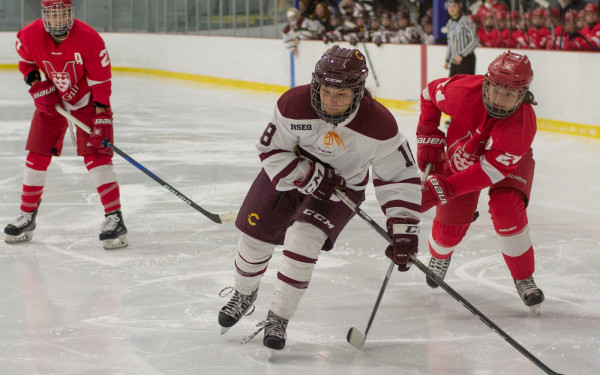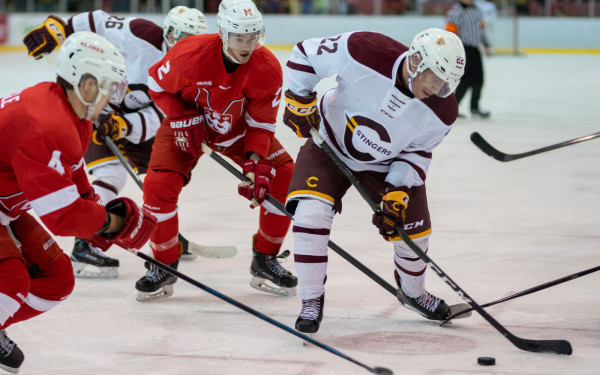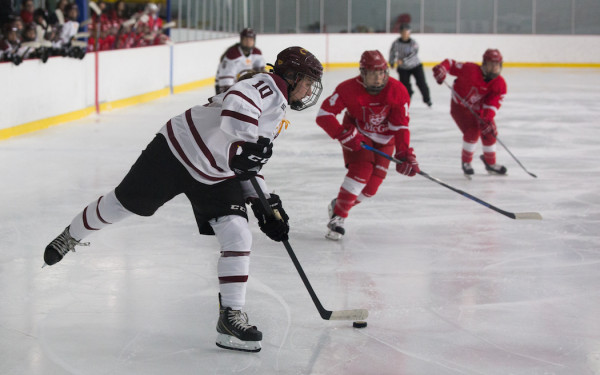HBCUs, and their importance in collegiate athletics
From athletics to academic prowess, historically Black colleges continue to make an impact on student athletes
The 1970’s and 80’s saw numerous historically Black college and university, or HBCU, athletes drafted into pro-sports.
With hall of famers like Jerry Rice, Walter Payton, Michael Strahan, Shannon Sharpe, and Mel Blount to name a few. Shannon Sharpe said on his show Undisputed that attending an HBCU was the greatest decision he ever made.
“It was a culture shock because I had never experienced that part of Black culture,” said Tenicha Gittens, the head coach of the Concordia women’s Basketball team and former assistant coach at Howard University. She has an extensive coaching resume, including multiple NCAA and U Sports programs.
She said her time as a coach at Howard University showed her how HBCUs educate their students about Black history normally not taught in predominantly white institutions, as well as embracing and celebrating Black culture:
“To see people who look like you every day being represented, and being elite academically, athletically, socially; being activists and voices is a really beautiful thing.”
Although historically Black institutions were founded due to the prohibition on African-Americans studying at predominantly white universities, the contemporary HBCU campus provides opportunities for Black and non-Black students alike. These institutions provide a chance to learn and embrace Black culture and history, while preparing athletes who are looking to make the jump to the next level.
In December of 2021, HBCU athletic recruitment met a media renaissance when Travis Hunter, the number one nationally ranked high school football player, and Kevin Coleman the No. 58 ranked prospect in the ESPN 300, committed to play at Jackson State University. The signing marked a historic building period for Jackson State under the Deion Sanders coaching era. Sanders himself has already begun to reshape the university, with an illustrious NFL career behind him. Coach Prime—as he is known—has been credited as an important influence on the culture and team at Jackson State.
“There’s a huge lens on HBCUs now, and how dominant athletes are that come from there, and academically how strong those institutions are,” Gittens said.
Despite this, and in more recent years, top prospects have been trading the experience of an HBCU for the glitz and glamour that comes from predominantly white institutions.
“When you look at why those HBCUs don’t get, or why they didn’t get, the notoriety; they don’t get the fan base, the tv deals and the primetime, the big Nike deals and the endorsements, etcetera. Well, all of our Black talent and athletes are going to [predominantly white institutions.]” said Gittens.
Being drafted comes at a cost as well, as the number of HBCU alumni to be selected in recent years has diminished. In 2021, there were zero HBCU athletes drafted into the NFL and only 18 players on active roster spots were from an HBCU.
There have been attempts to change this narrative. Most recently, the Reese’s Senior Bowl, a perennial showcase for top draft-eligible prospects to show off their talents, has partnered with the NFL to form the HBCU draft combine. Players from HBCU divisions and institutions were invited to Mobile, Alabama to participate in the event, which resembles the NFL combine.
“As we start to see a movement of some of the top athletes going to HBCUs you’re going to see a lot of things start to improve,” Gittens said. “You’re going to see a lot more visibility. You’ll see a lot more of these young athletes on television making these deals, and getting the notoriety we absolutely deserve.”
Hope for the future is high. The goal is for more top athletes to commit to HBCUs, and with this representation, momentum will build, making underrepresented HBCU draft classes like 2021, a thing of the past.




4_600_375_90_s_c1.jpg)


